When we're unemployed, we're called lazy; when the whites are unemployed it's called a depression
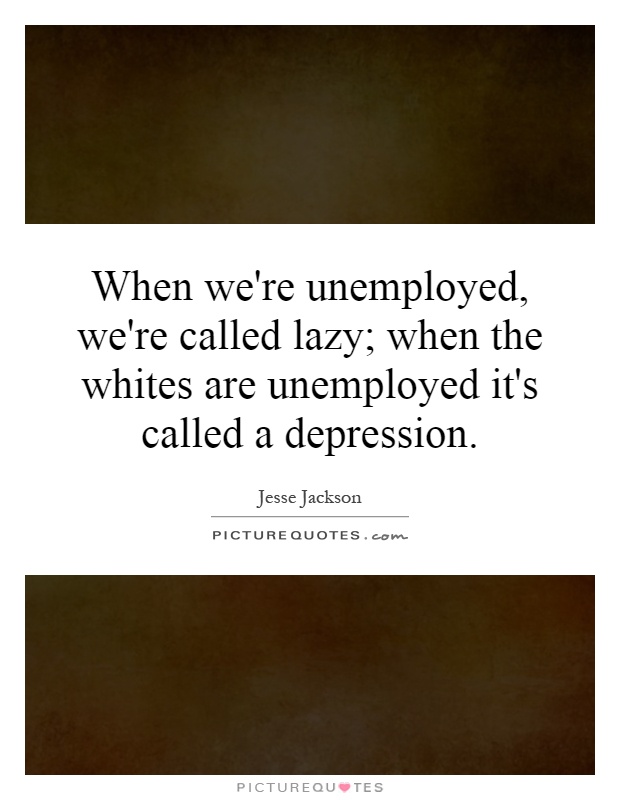
When we're unemployed, we're called lazy; when the whites are unemployed it's called a depression
Jesse Jackson, a prominent civil rights activist and former presidential candidate, has long been a vocal advocate for economic justice and equality. Throughout his career, Jackson has highlighted the disparities in how unemployment is perceived and addressed based on race. The quote, "When we're unemployed, we're called lazy; when the whites are unemployed it's called a depression," encapsulates the systemic racism and double standards that exist within the American workforce.For decades, African Americans have faced higher rates of unemployment compared to their white counterparts. Despite this, Black individuals are often stigmatized and blamed for their own unemployment, with stereotypes of laziness and lack of work ethic perpetuated by society. This harmful narrative not only ignores the structural barriers that contribute to Black unemployment, such as discrimination in hiring practices and lack of access to quality education and job opportunities, but also serves to further marginalize and disenfranchise Black communities.
On the other hand, when white individuals experience unemployment on a larger scale, it is often framed as a national crisis or economic downturn, such as the Great Depression or the recent recession. The language used to describe white unemployment is more sympathetic and understanding, with calls for government intervention and support to address the issue. This disparity in perception and response to unemployment based on race highlights the deep-rooted racism and inequality that continue to plague our society.
Jesse Jackson has been a tireless advocate for economic justice and equal opportunities for all Americans, regardless of race. He has called attention to the racial disparities in unemployment rates and the need for systemic change to address these inequalities. Jackson's work has been instrumental in raising awareness about the injustices faced by Black individuals in the workforce and advocating for policies that promote economic equity and inclusion.




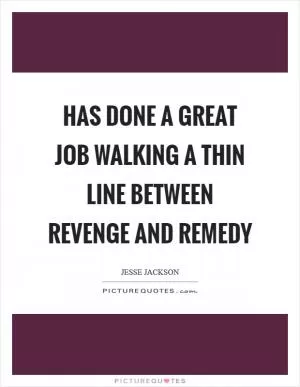

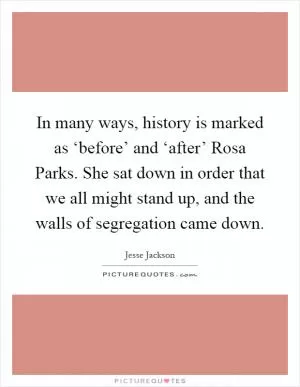

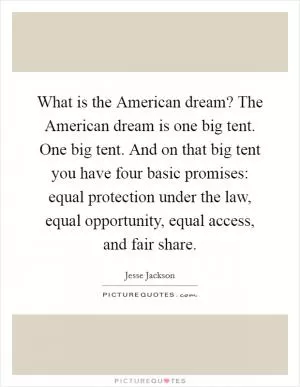
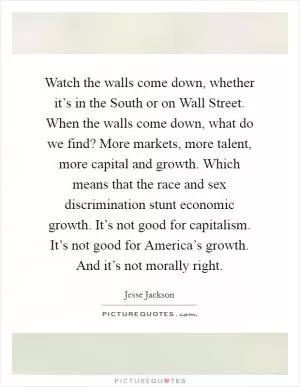

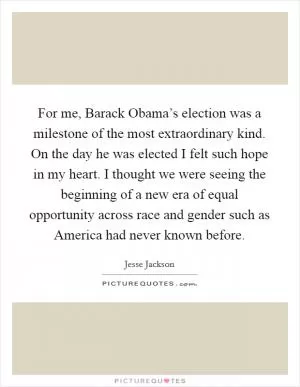
 Friendship Quotes
Friendship Quotes Love Quotes
Love Quotes Life Quotes
Life Quotes Funny Quotes
Funny Quotes Motivational Quotes
Motivational Quotes Inspirational Quotes
Inspirational Quotes